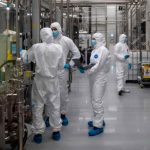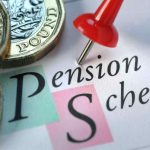GABA is a powerful neurotransmitter that inhibits nerve cells’ ability to receive, create and send chemical messages to other nerve cells in your brain. As a result, it slows your brain down and has a calming effect.
GABA is also present in the enteric nervous system, and there’s evidence suggesting it may be able to act on the peripheral nervous system as well, through the gut-brain axis.1 It also exists naturally in foods, such as white tea, tomato, germinated rice and some fermented foods.2
As reported by Cleveland Clinic,3 GABA is “thought to play a major role in controlling nerve cell hyperactivity associated with anxiety, stress and fear.” Indeed, a scientific review paper4 published in 2012 explains that “GABA interneurons play key parts in the acquisition, storage and extinction of fear,” and GABA has potent anti-anxiety and antidepressant effects without sedative effects and the risk of dependence.
A more recent systematic review,5 published in 2020, concluded that natural and biosynthetic oral GABA may be helpful for both stress and sleep, although the evidence is still limited. According to this paper:6
“Given the ubiquitous role of GABA as an inhibitory neurotransmitter, along with its widespread distribution, it is unsurprising that it has been implicated in a large range of behaviors. These include anxiety and stress regulation, circadian rhythm and sleep regulation, memory enhancement, mood, and even perception of pain.
Low levels of GABA or impaired GABA functioning is associated with the etiology and maintenance of acute and chronic stress, anxiety disorders and sleep disturbances such as insomnia.”
Does Oral GABA Work?
Now, there’s ongoing debate as to whether oral supplementation with GABA works on brain-related issues as it’s still unclear whether, and how well, GABA can cross the blood-brain-barrier (BBB). Studies looking into this matter have come to wildly differing conclusions, as noted in the 2020 review cited above.
For decades, the drug industry and mainstream medicine have spent a ton of money on questionable studies to “prove” GABA supplementation has no effects on the brain. This is understandable once you realize that many of the most popular anti-anxiety meds, such as benzodiazepines, are GABA agonists.
Most of alcohol’s effects perceived as positive … are due to ethanol’s ability to also activate GABA receptors, both in the brain and elsewhere. ~ Georgi Dinkov
If you can just take a GABA supplement to treat your anxiety, depression and sleeplessness, the drug industry would suffer major losses. Alcohol is also a potent GABA agonist, and as noted by Georgi Dinkov,7 “most of alcohol’s effects perceived as positive … are due to ethanol’s ability to also activate GABA receptors, both in the brain and elsewhere.”
Interestingly, companies are now working on alcohol replacement products based on GABA, so, the industry faces a tricky problem. If oral GABA can’t cross the BBB, just how could a GABA-based synthetic alcohol produce alcohol-like effects in the brain? Dinkov writes:8
“We are now living in an openly clown world, so I don’t really expect many doctors to change their position based on contrarian evidence, but it is a stunning admission on behalf of medicine regardless …
[On] a slight tangent … one could conclude at least three things. One, people with anxiety would probably have a higher rate of alcohol consumption than the general population, and even an ‘addiction’ to it in cases of severe anxiety …
People with anxiety are probably under chronic stress as the latter blocks the GABA system and activates the anxiogenic HPA-axis. It just so happens that all these conclusions have been proven beyond reasonable doubt.
As a side note to alcohol’s effects — the latter is also an NMDA antagonist and that mechanism also contributes to alcohol’s positive effects such as disinhibition and rapidly acting anti-depressant (though, becoming depressant with long-term use). Thus, GABA agonism probably won’t replicate all of alcohol’s positive effects but could still be a close substitute.
This link between GABA and alcohol was well-known as far back as the early 1970s and Big Pharma even synthesized a molecule called ‘DS1’ (of course, a GABA agonist) reputed to replicate alcohol’s positive effects almost completely, with none of the downsides.
That molecule never reached the market, and the official excuse was that Big Pharma was concerned about the ‘moral hazard’ of selling such a molecule.
However, a more conspiratorial (read: realist) person would probably suspect that heavy lobbying from the trillion-dollar alcohol beverage industry probably played a much bigger role in the decision not to sell DS1.
In conclusion … there is at least one pharma company out there (GABA Labs) that is now openly claiming that oral GABA is certainly centrally active, and is thus developing an oral GABA product as an alcohol substitute that should have most/all of alcohol’s positive effects but none of detrimental effects, which include not only the dreaded hangover but also serious chronic conditions such as liver disease, CVD, and even cancer …
My only hope is that all this good publicity in regard to the benefits of oral GABA does not result in GABA being declared by the FDA a ‘novel drug,’ and thus banned from over-the-counter sales.
For those curious enough to do some self-experimentation, aside from GABA itself, other amino acids with similar pro-GABA effects such as taurine, beta-alanine, theanine, and even glycine should have similar alcohol-replicating effects.
What’s the dose you ask? Well, based on the information … provided by a company using the GABA Labs technology, it looks like each shot of their alcohol-mimetic has 1g of GABA. Assuming similar effectiveness of GABA agonism across the various amino acids, I’d try 1g taurine or beta-alanine per shot.
Theanine seems to be more potent and probably would work best in doses of no more than 200 mg per drink/shot. In addition, GABA agonist steroids such as progesterone and allopregnanolone should also have such effects, and in fact high-dose progesterone is well-known to produce a ‘drunk’ effect described by the afflicted as very similar to alcohol’s.”
The Serotonin Fallacy
While we’re on the subject of mental health, Big Pharma has also misled patients by falsely insisting that depression and anxiety are due to serotonin deficiency and can be effectively treated with selective serotonin reuptake inhibitors (SSRIs).
SSRIs work by blocking the reuptake or reabsorption of serotonin by the nerve cells, thereby increasing the level of serotonin in your brain. Serotonin has been “sold” as a feel-good hormone, but elevated levels may cause a lot of harm, because it’s also an antimetabolite.
This means it suppresses your body’s ability to create energy in the electron transport chain of your mitochondria, so you become tired and fatigued, your metabolic rate slows, and you gain weight. What’s worse, slower metabolic rate also means you’re aging faster. So, keeping your serotonin level chronically elevated may shave years off your life.
Long-Term SSRI Use Linked to Premature Death
This concern is not just speculative. A meta-analysis9,10 published in 2017 showed that people who take SSRIs long-term indeed have a 33% higher mortality rate.
Two years before that, Danish physician, medical researcher and cofounder of the Cochrane Collaboration, Peter C. Gøtzsche, also warned that long-term use of SSRIs could lead to premature death.11
While some argue that untreated mood disorders can turn deadly as it increases a person’s risk of suicide, Gøtzsche estimates the number of suicides caused by antidepressants is 15 times higher than the U.S. Food and Drug Administration admits, so we may simply be trading one suicide risk for another.
GABA Deficit Is Common in Depression and Anxiety Disorders
Wouldn’t it make sense to promote a treatment that didn’t come with a risk of suicide, such as GABA? Low GABA may be a far more central problem in depression than low serotonin. As noted in the 2012 scientific review paper cited earlier:12
“In view of the finding that anxiety disorders and major depression share a GABAergic deficit as a common pathophysiology, the GABA hypothesis of depression has found increasing support. It holds that α2/α3 GABAA receptor modulators may serve as novel antidepressants.”
Meanwhile, studies have repeatedly failed to find a connection between low serotonin and depression. One of the most recent was a systematic review published in 2022. Like so many others, it concluded:13
“The main areas of serotonin research provide no consistent evidence of there being an association between serotonin and depression, and no support for the hypothesis that depression is caused by lowered serotonin activity or concentrations.”
Companies Seek to Create Alcohol Substitute With GABA
As recently reported by The Wall Street Journal,14 ZeroHedge15 and others, synthetic alcohol, designed to give you the positive effects of alcohol without the drawbacks, such as hangovers, are the next “big thing.”
One company trying to break open the synthetic alcohol niche is GABA Labs, which is basing its product on gamma-aminobutyric acid (GABA), known for its ability to induce relaxation and stress-relief.
GABA Labs’ chief scientific officer is Dr. David Nutt, a former psychiatrist, neuropsychopharmacologist and clinical science section chief at the National Institute of Alcohol Abuse and Alcoholism.
According to Nutt, the company’s product, Alcarelle, makes you feel as though you’ve had a glass of wine. “It feels relaxing. It makes you a bit chattier, a bit more socially engaged with people,” he says. GABA Labs is currently looking for investors. If it can raise the needed $10.3 million, it predicts it will be able to complete the required food safety testing by mid-2026.
Another company working with GABA is called Amygdala. They’re developing an oral GABA-based drug to inhibit alcohol cravings by targeting similar brain receptors as alcohol. Dr. Mack Mitchell, the company’s senior medical advisor, commented, “People who can’t control drinking don’t always want to stop drinking completely. They just want to be able to drink normally.”






